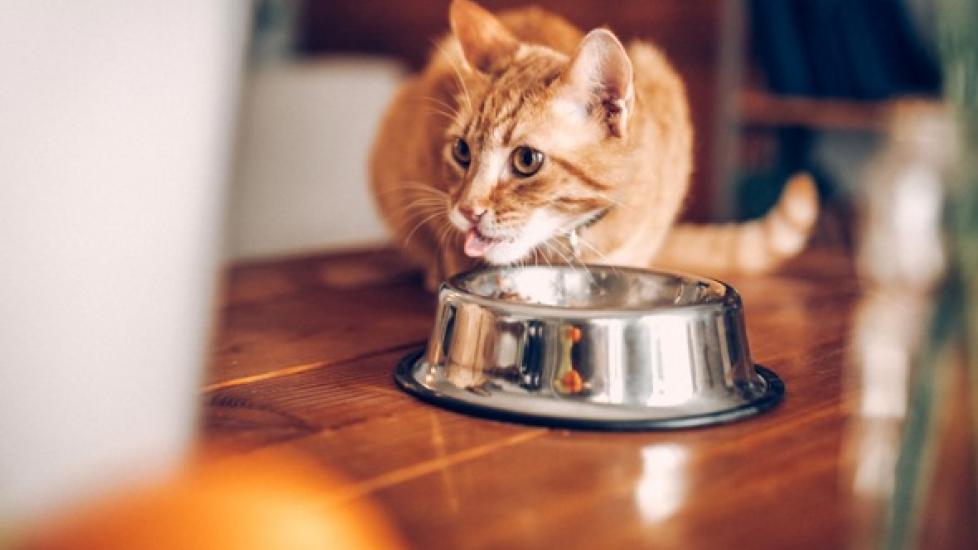Is There a Special Diet for Hyperthyroidism in Cats?
Cats with hyperthyroidism have happier, healthier lives when their caregivers are knowledgeable about the disease and its dietary management.
Here are some hyperthyroidism management tips about what should be included in a diet for cats with hyperthyroidism and why it’s such an important part of managing the disease.
Treating Hyperthyroidism in Cats
The goal of hyperthyroidism treatment is to lower the levels of thyroid hormones in the body. This can be accomplished in several ways:
-
Radioactive iodine therapy
-
An anti-thyroid medication, like methimazole
-
A special diet for cats with hyperthyroidism
-
Thyroidectomy (largely replaced by radioactive iodine therapy)
Working together, you and your veterinarian can determine what type of treatment is best for your cat. However, no matter which method you choose, diet can be an important part of all of them.
Prescription Diets for Cats with Hyperthyroidism
Hyperthyroidism can be managed through an iodine-restricted prescription diet, often without the use of other medical treatments. However, the effects of long-term iodine restriction on a cat’s health are still being studied.
Iodine levels in foods for cats with hyperthyroidism should be limited to 0.32 parts per million or less. The idea behind iodine restriction is this: since adequate iodine intake is necessary for the production of thyroid hormones, strictly reducing iodine in the diet limits the amount of thyroid hormone that can be produced.
Hill®’s Prescription Diet y/d Thyroid Care canned cat food is a commonly prescribed food that fits the above parameters. It’s also available in a dry food version—Hill®'s Prescription Diet y/d Thyroid Care Original dry cat food.
It has been clinically proven that within three weeks of beginning this type of hyperthyroidism diet, levels of T4 thyroid hormones begin to decrease, and within a few months, they are often back to normal.
IMPORTANT: Cats who are being treated for hyperthyroidism with an iodine-restricted diet CANNOT be fed anything other than their prescription food.
This means absolutely no treats, no people food, and no scavenging or hunting. Any food other than the prescribed diet could ruin the careful balance of iodine intake necessary to improve hormone levels.
Diets for Cats with Hyperthyroidism as Part of a Another Treatment
Many hyperthyroid cats that are being treated with radioactive iodine therapy, methimazole or thyroidectomy can benefit from eating a high-protein, high-energy food like Instinct by Nature®'s Variety Original grain-free chicken recipe wet cat food or Tiki Cat® Hanalei Luau wild salmon grain-free wet cat food. These foods can help a cat regain the weight and muscle mass that they have lost due to their overactive thyroid.
However, if your cat has compromised kidney function, more moderate levels of protein may be advisable. Eating too much protein can lead to a worsening of symptoms in cats with kidney disease.
Canned food is ideal due to its high water content, which will help counterbalance your cat’s tendency to overproduce urine due to high thyroid hormone levels. It’s also important that your cat have free access to clean water at all times.
Once a cat’s thyroid levels have been normalized with radioactive iodine therapy, methimazole or thyroidectomy, and the cat has regained a healthy amount of weight, their diet should be adjusted to meet their maintenance needs.
Your veterinarian can help you pick out an appropriate food at all stages of recovery.
Featured Image: iStock.com/eclipse_images
